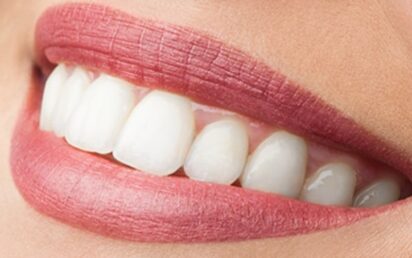We all know too much sugar is bad for teeth – and our waistlines!
But how else can our diet affect oral health? Which foods should we take off the menu and which should we be serving up more of?
Let’s take a look.
The good list
- Calcium-rich food
Calcium is one of the most important elements of any diet when it comes to maintaining healthy and strong teeth and bones.
Milk, yoghurts and cheese are ideal but don’t panic if you’re lactose intolerant – soy milk substitutes offer a great alternative.
If you’re not a big fan of dairy, try tucking into sesame seeds as these are also high in calcium.
- Protein
Protein is essential in any diet as it helps to build and repair tissue. Great sources include meat, tofu and eggs. It can also be found in green leafy veg, beans and nuts.
Eating protein-rich foods also provides us with phosphorous – this plays an important role in strengthening teeth and balancing pH levels in the mouth, which in turn deters cavity-creating bacteria.
- High fibre foods
Staying regular with a diet of fibre-rich fruit and veg is great for our bodies but it’s also important for teeth.
Why? Because foods high in fire help to stimulate the production of saliva which plays a crucial role in neutralising acids and rinsing away food particles and plaque.
- Whole grains
Rice, corn, oats, and wheat contain high levels of magnesium, which is great for strengthening tooth enamel. Just be sure to avoid processed grains as far as possible, as these mostly dissolve into sugars once eaten, countering any positive effects.
- Water
Perhaps the most important element of any healthy diet is water. And our oral health is just as dependent on it as our physical.
You should aim to drink around 1.2 litres every day (that’s around 6-8 glasses). Ideally consuming one of these after each meal, as this helps to rinse your mouth and dilutes the effect of any sugary or acidic foods.
- Vitamin C-rich foods
A warrior against acid-creating bacteria, vitamin C helps to fend off unwanted nasties from the surface of teeth.
Get stocked up on oranges, apples, strawberries etc as these all contain a bumper dose.
- Vitamin D–rich food
Vitamin D is calcium’s best friend – helping our bodies to make the best use of the calcium we consume and supporting enamel development.
Vitamin D is harder to source in your diet but if you eat plenty of oily fish – salmon, mackerel, sardines etc- then you’ll get enough.
The bad list
- Sweets and chocolate
We know it’s boring but it’s the basic rule of oral health – avoid excessive sugar!
Sweets, chocolate, and fizzy drinks are all a huge no-no if you want to protect your mouth and encourage healthy teeth and gums.
- Tea and coffee
Dark food and drinks are notorious for causing surface stains and yellowing. Coffee is the real problem here but any dark drinks or builder’s brews can also contribute.
Try switching your daily brews to green tea. This contains polyphenol which actively protects teeth by preventing plaque build-up.
- Starchy food
Not only do soft squishy foods like bread, pasta and chips get easily stuck between teeth but they are also full of starch – which turns into sugar and encourages bacteria. So these are comfort foods to enjoy in moderation!
- Alcohol
It’s no new headline that alcohol is bad for us, or that red wine and dark spirits can stain teeth – but it gets worse.
Drinking alcohol actually dries out your mouth, and without much-needed saliva to wash away food particles and maintain a healthy balance, your oral health is at risk.
- Dried fruits
You’d be forgiven for thinking that dried fruits are a healthy snack, and in many ways, they are (dried fruits are full of fibre, nutrients, and antioxidants).
The problem is, they are also full of sugar.
This, combined with their stickier texture (making it easier for remains to cling to the surface of teeth), means that when it comes to the health of teeth, eating fresh fruits is a much better choice.
Variety is the spice of life – and the key to good oral health!
Our bodies are complex. They need a variety of vitamins and nutrients to function healthily. The best way to achieve this is, yes, to avoid the ‘bad’ stuff as far as possible but more importantly to concentrate on enjoying a varied diet.
Do this, and make sure you stay on top of your usual oral hygiene routine – brushing at least twice a day, flossing, and regular check-ups at your dentist in Putney (or wherever you’re based) – and your oral health will maintain a healthy balance.
Need a hand?
Sometimes though, all the brushing and careful eating in the world isn’t enough.
Suffering from wonky, overlapping and gapped teeth is a common problem. For some people, the issue can be so severe it impacts nutritional health – with certain foods just too tricky to bite or chew due to misaligned teeth.
No amount of eating the ‘right’ foods can fix this, but contact a trusted specialist – such as the Blythe Road orthodontist in Hammersmith – and they can! Offering a wide range of treatments such as traditional metal braces, ceramic braces, clear aligners and Invisalign.
With the right help – and the right diet – you can achieve a whiter, brighter, and all-round healthier smile.

